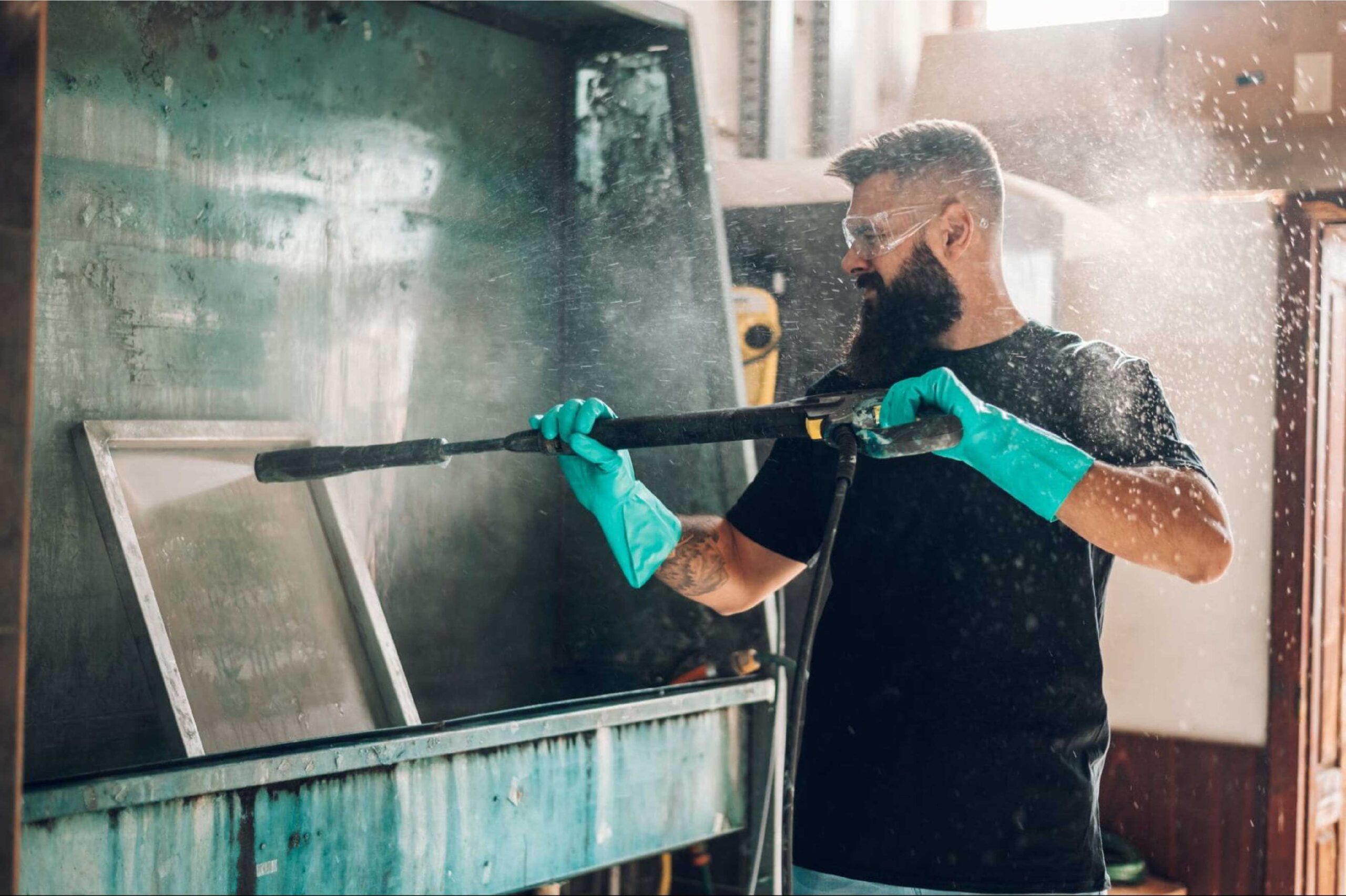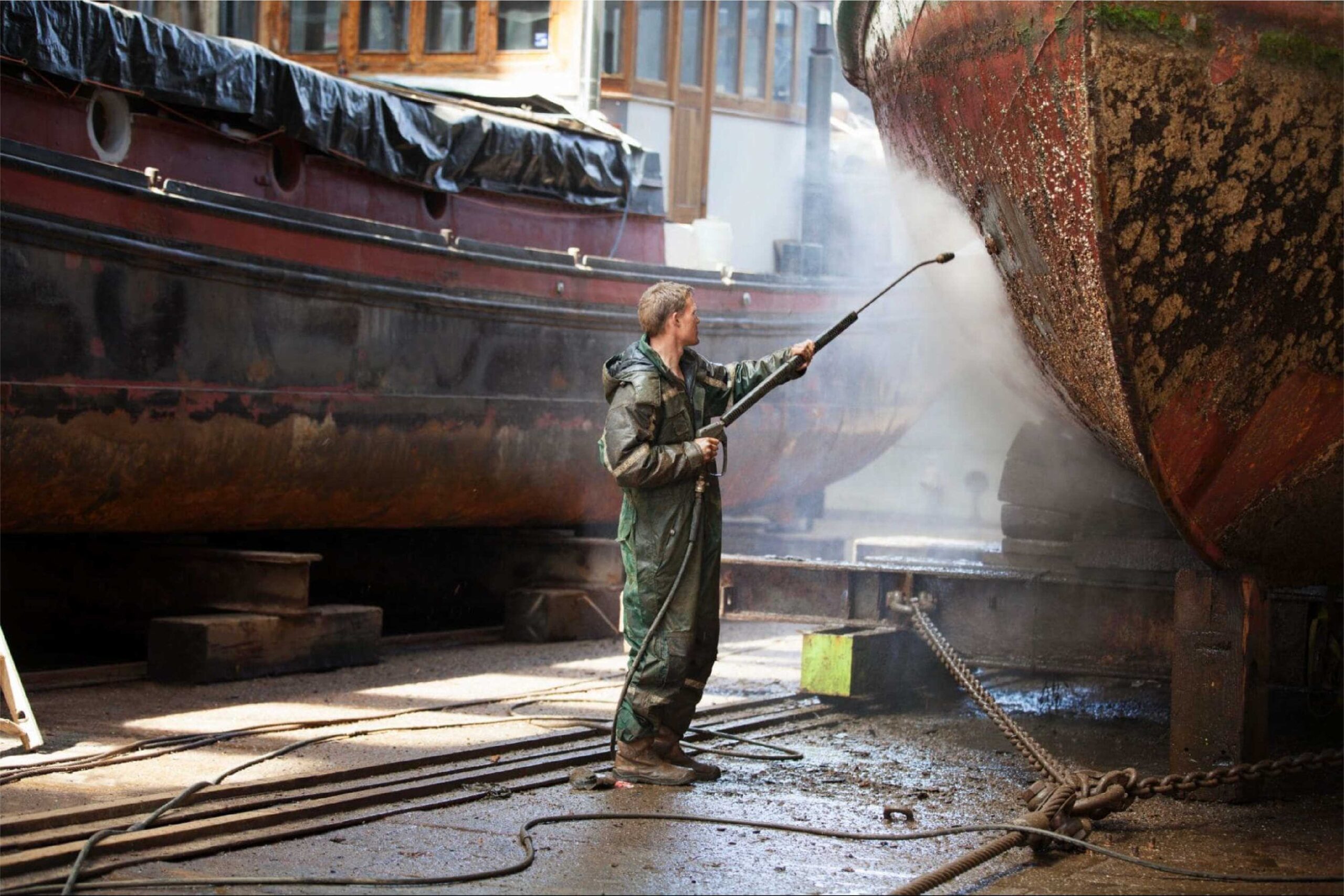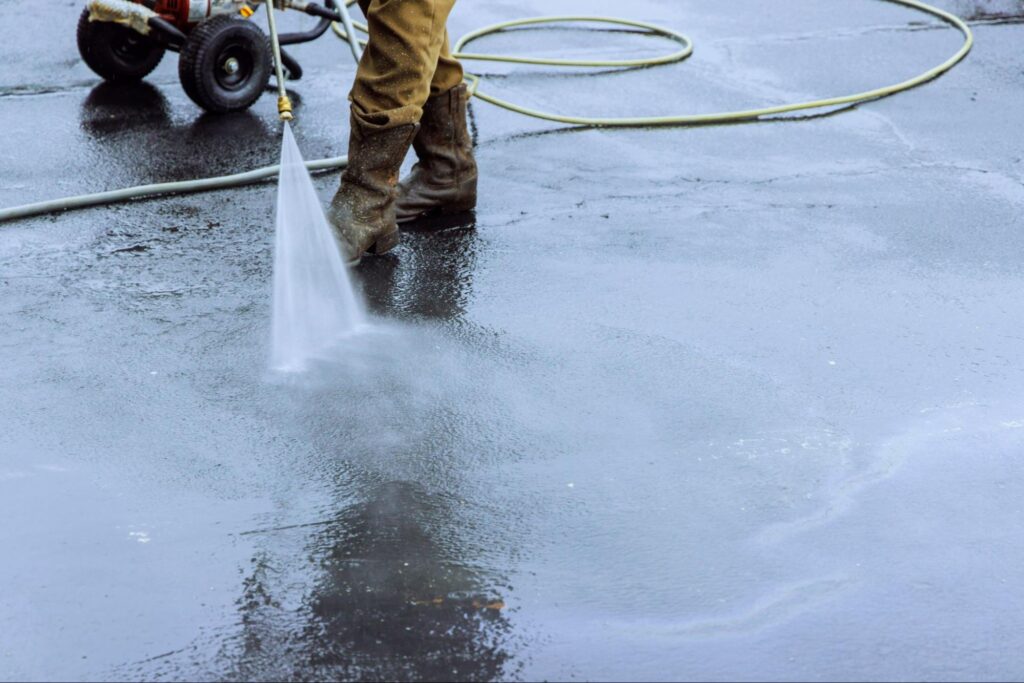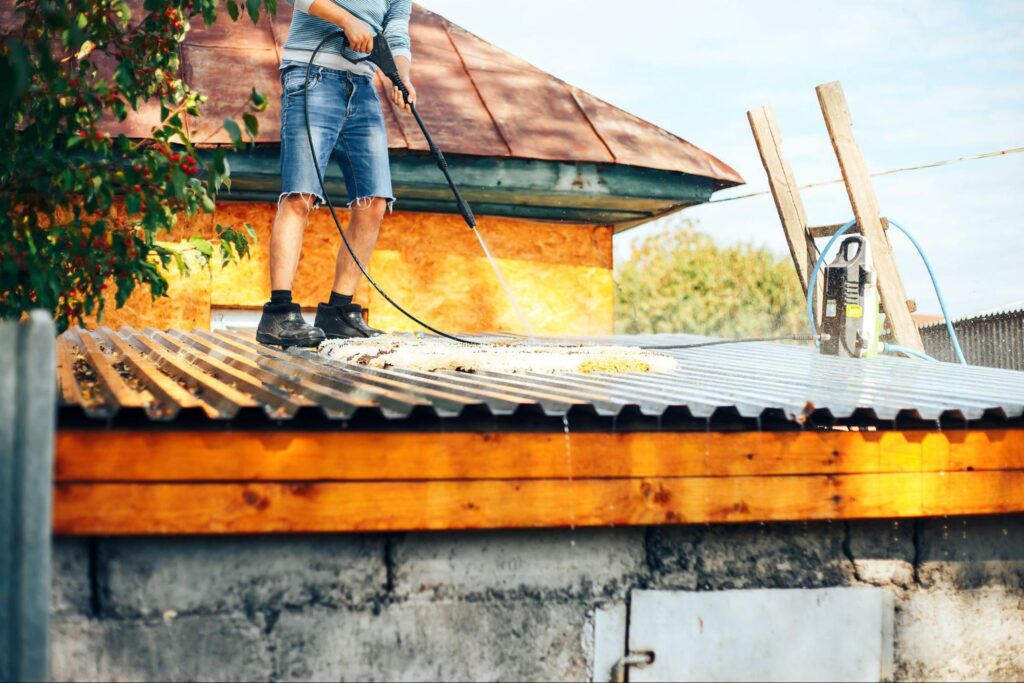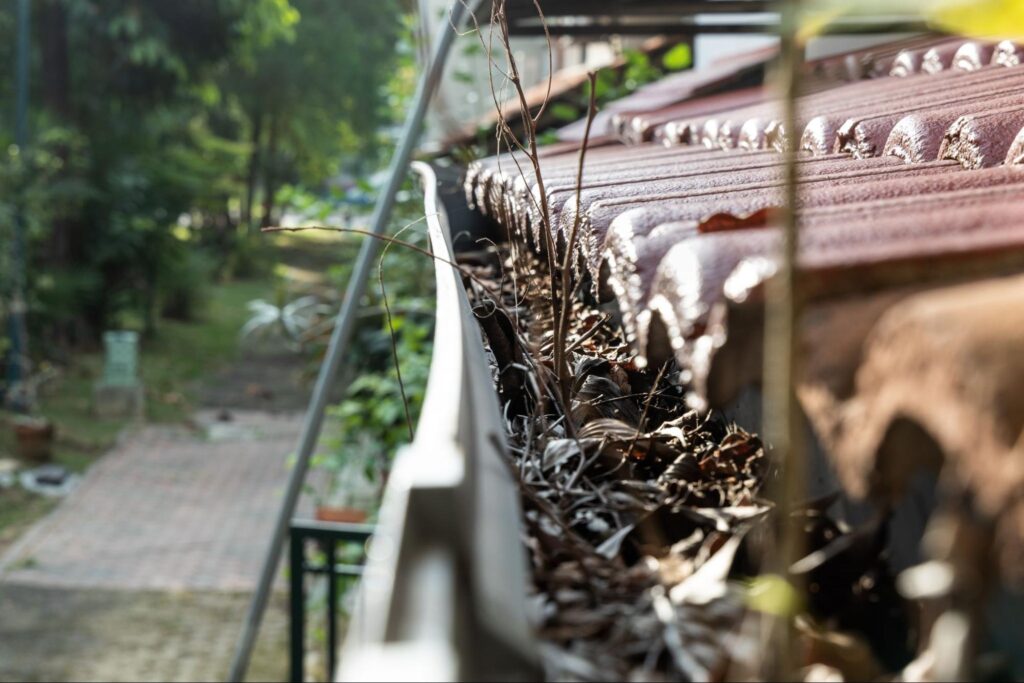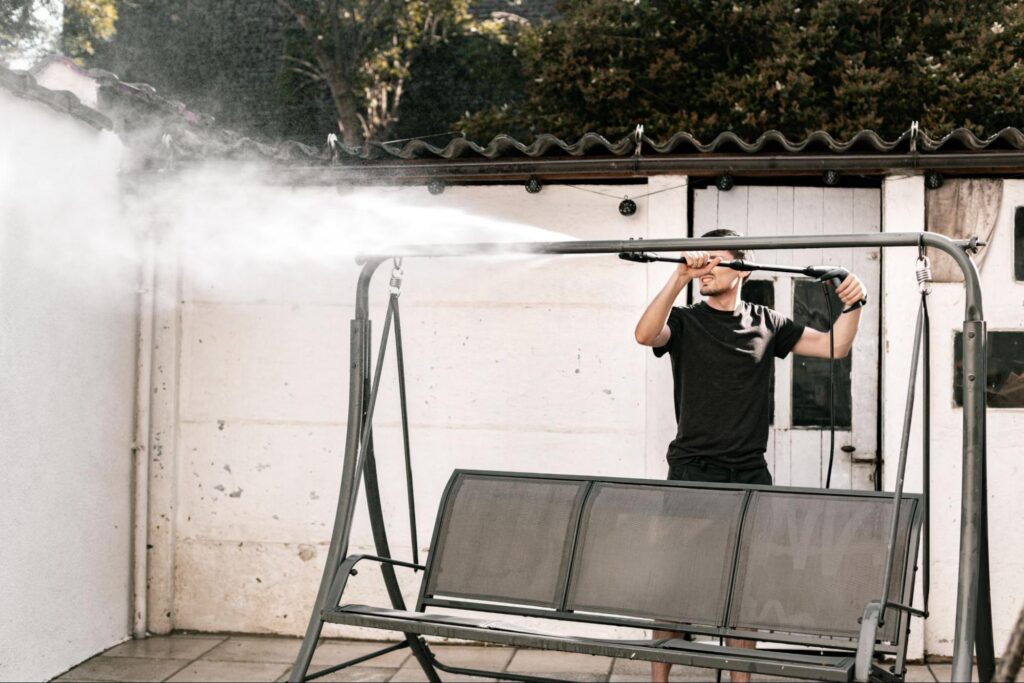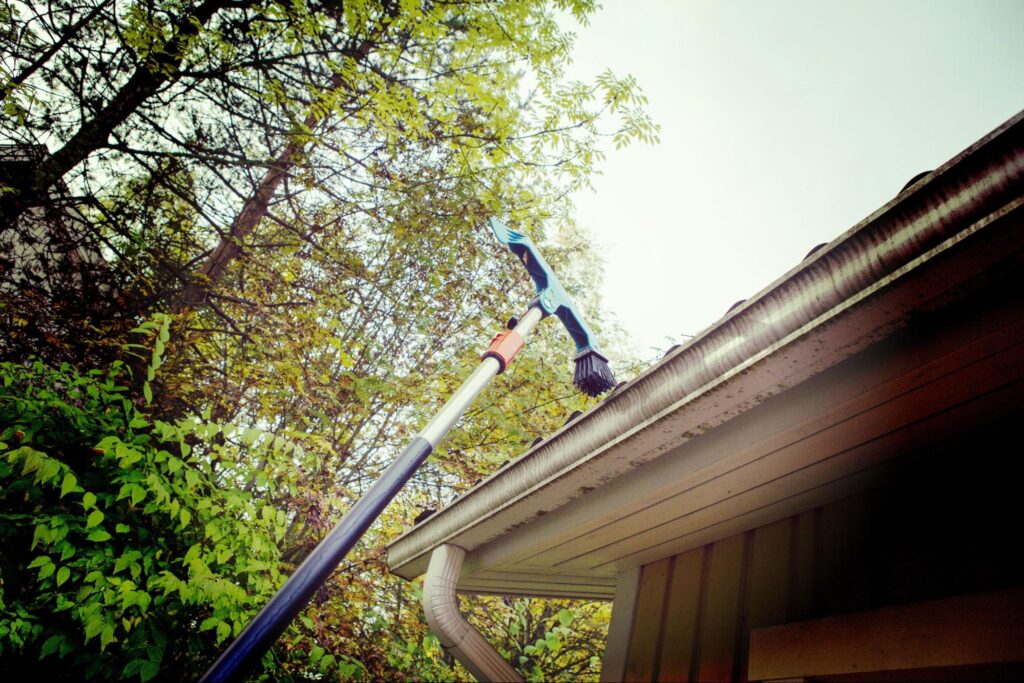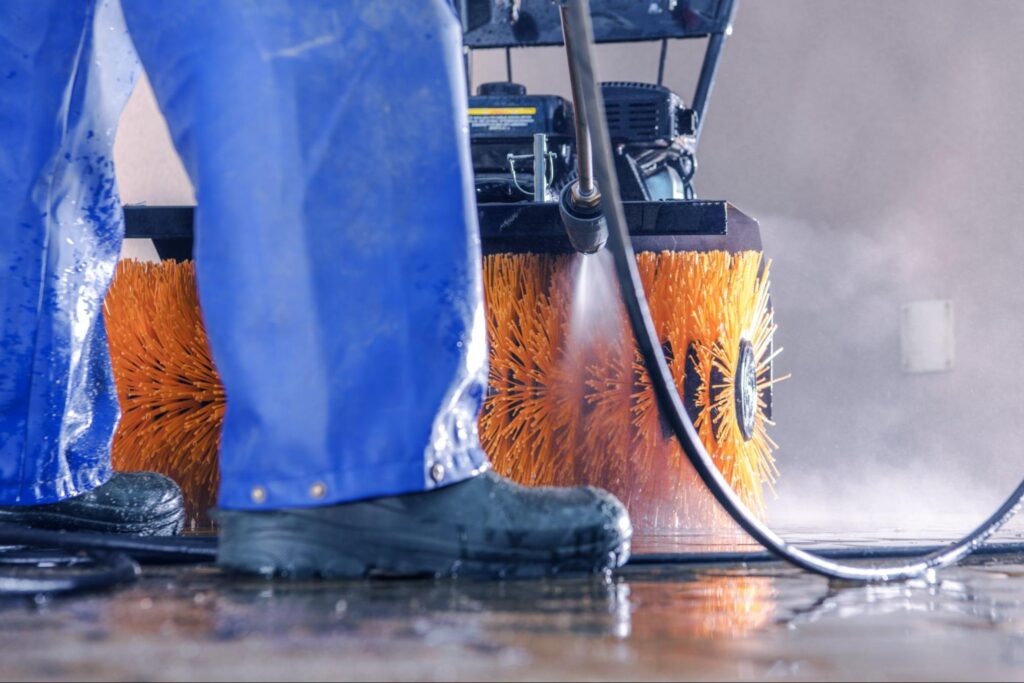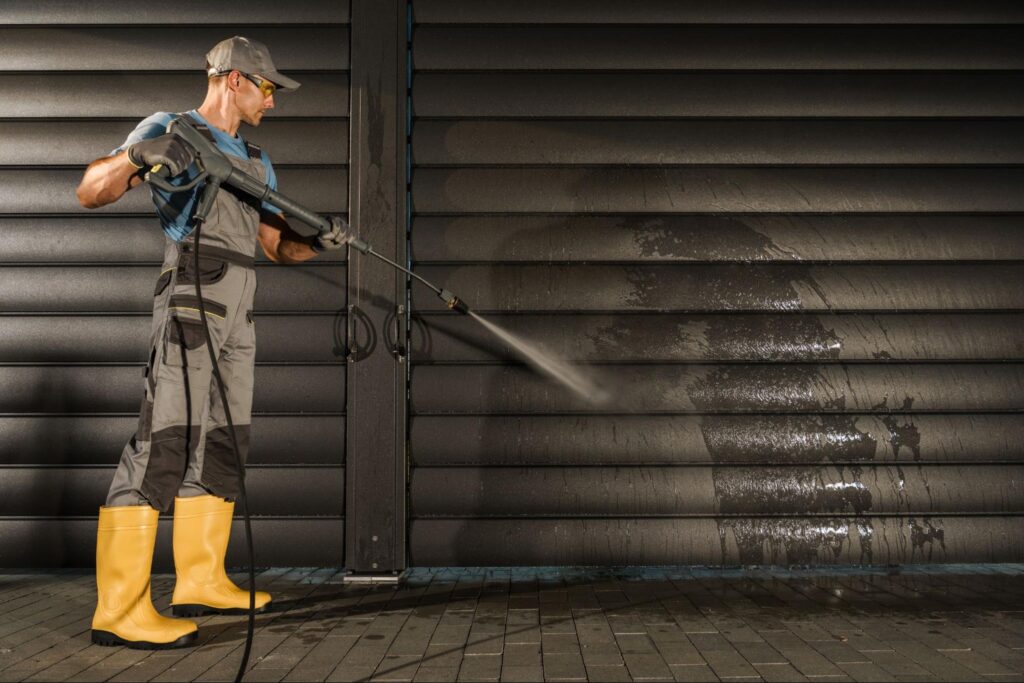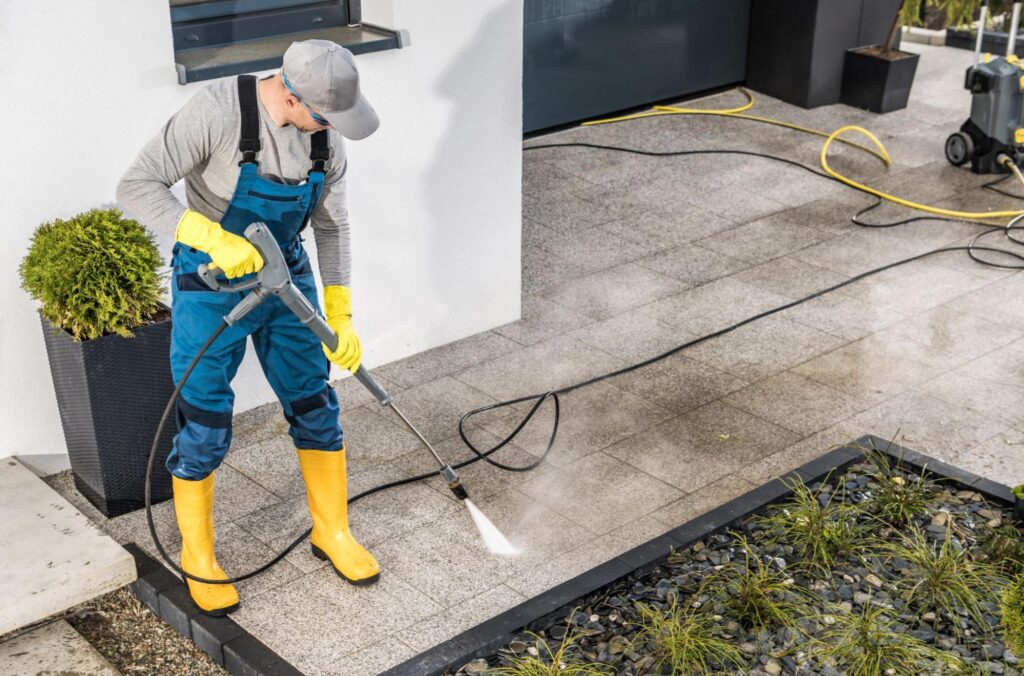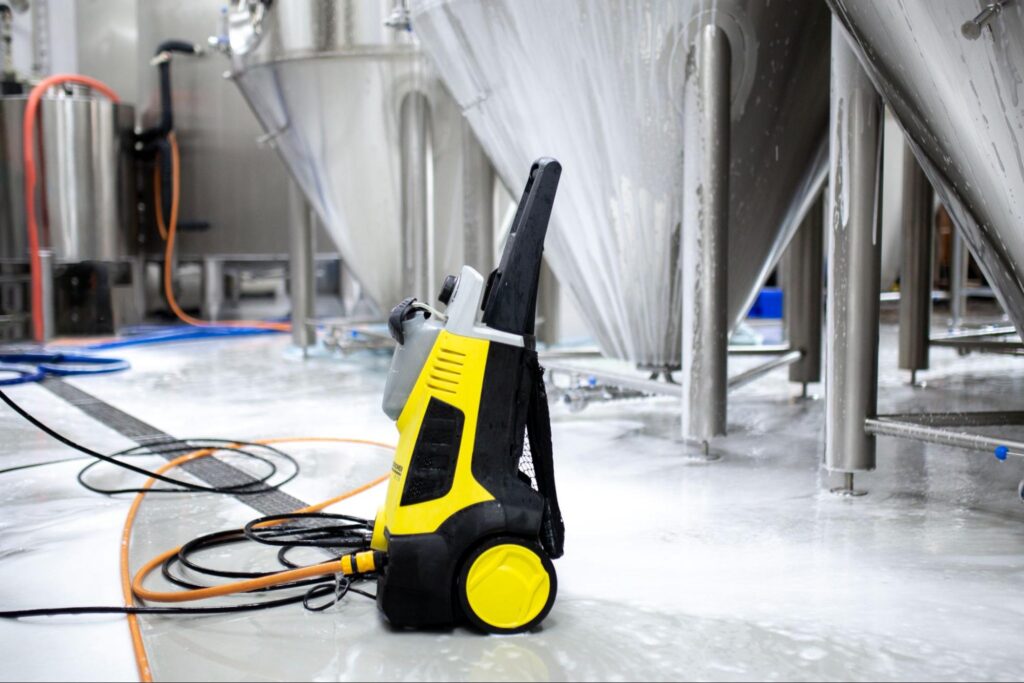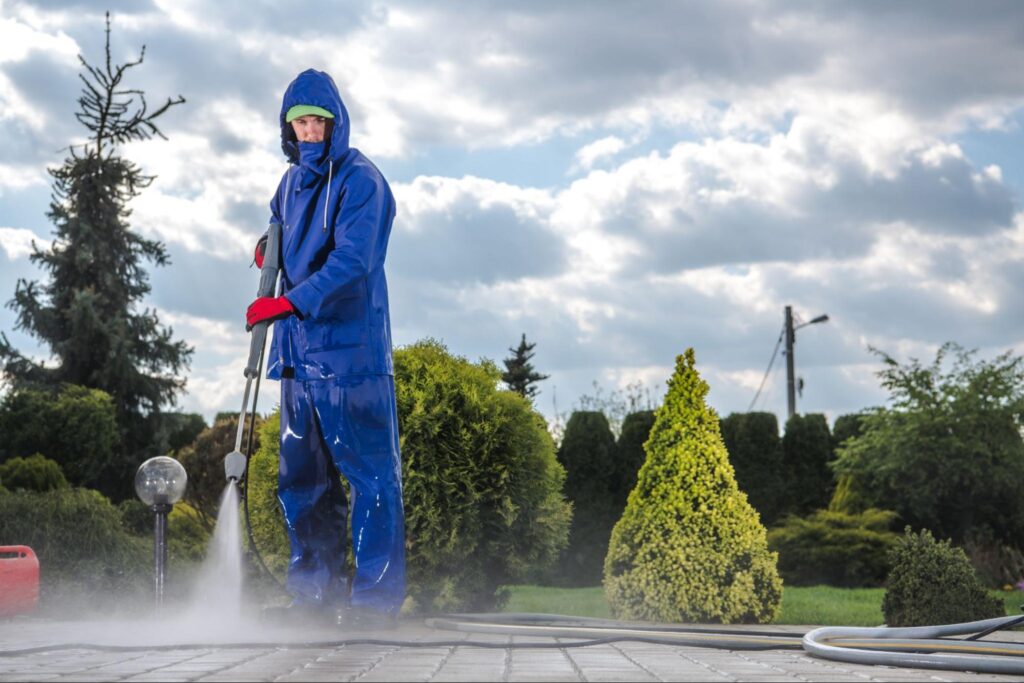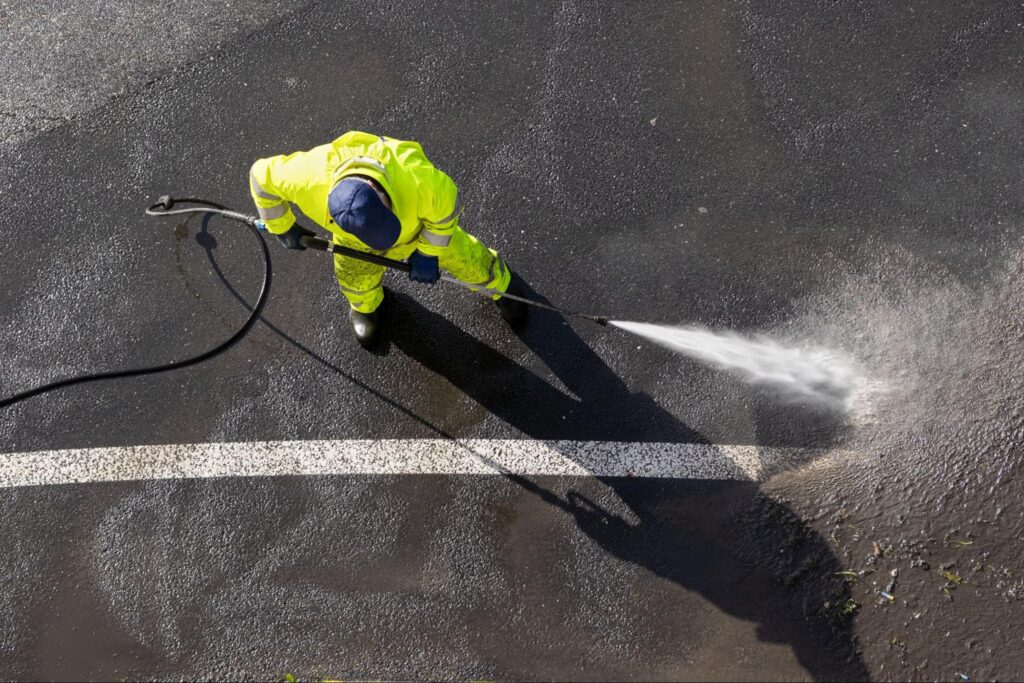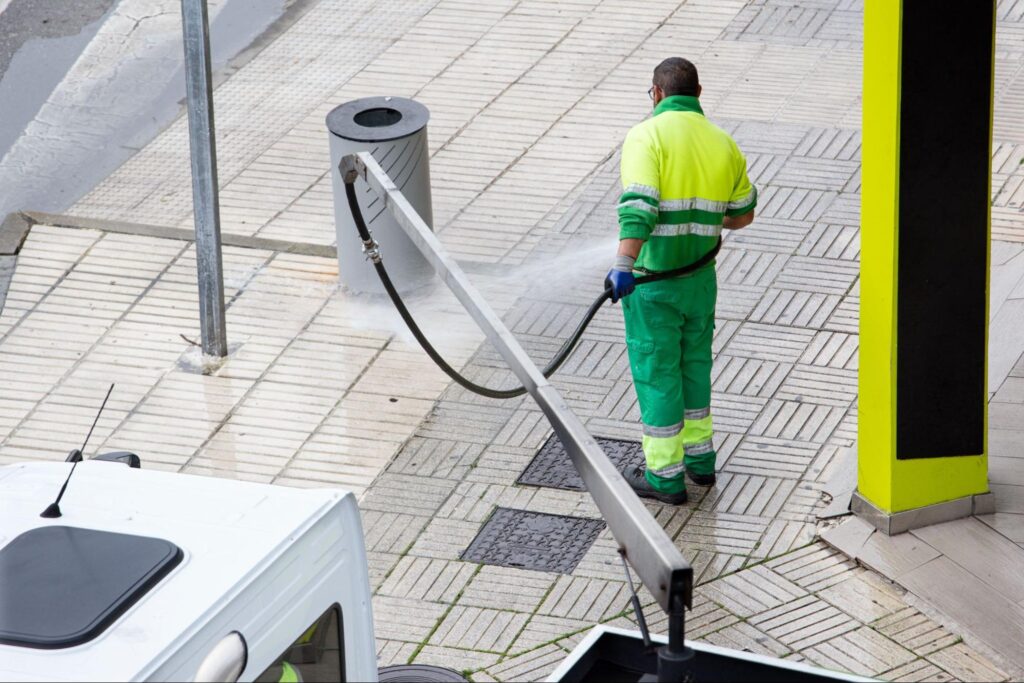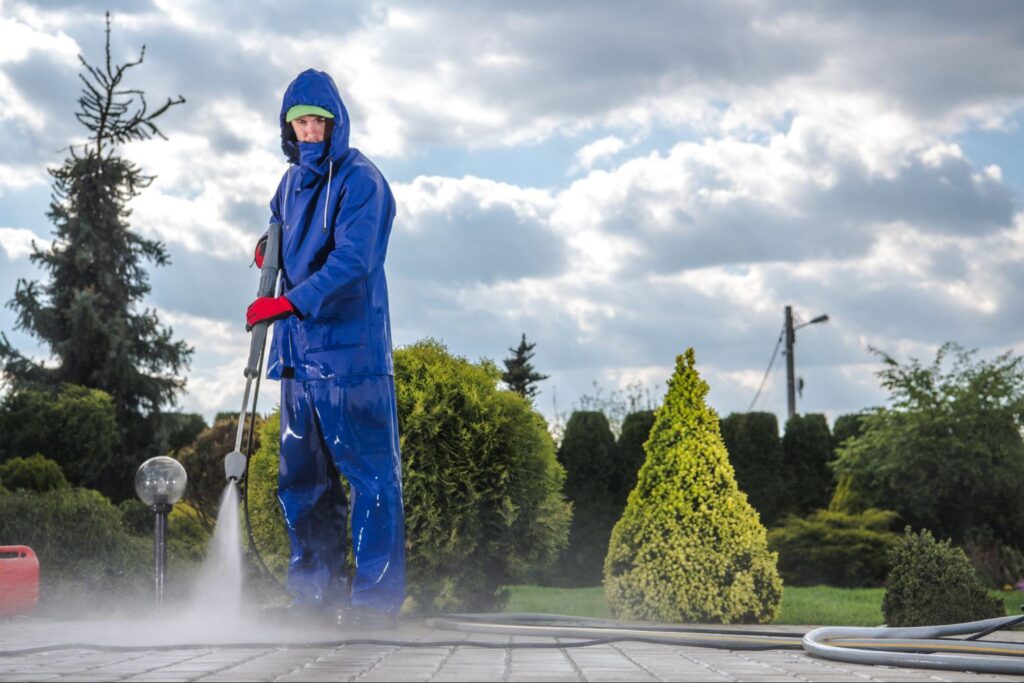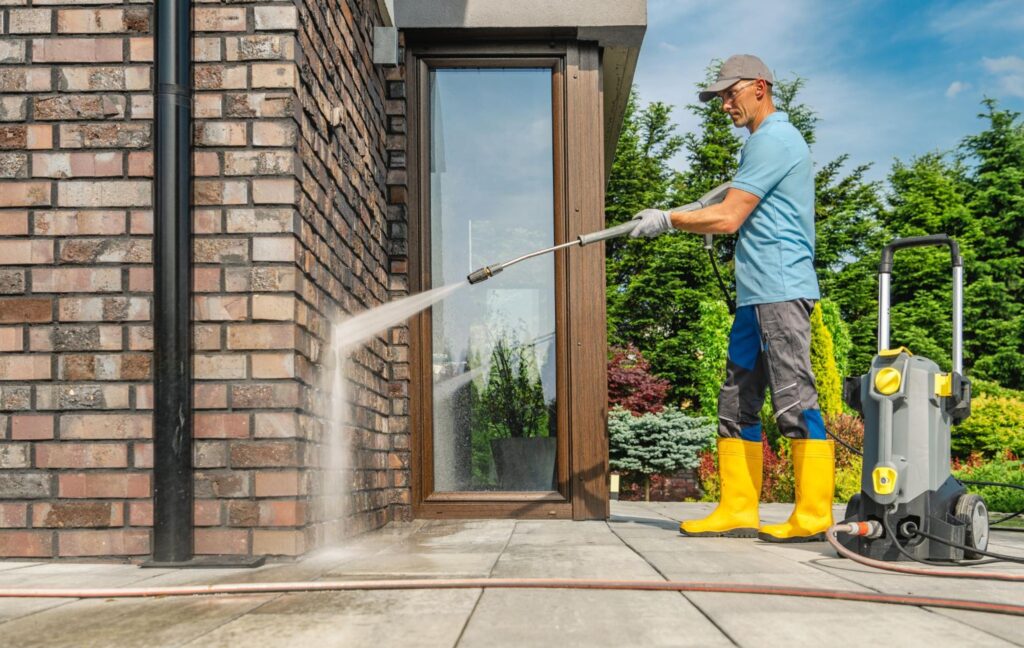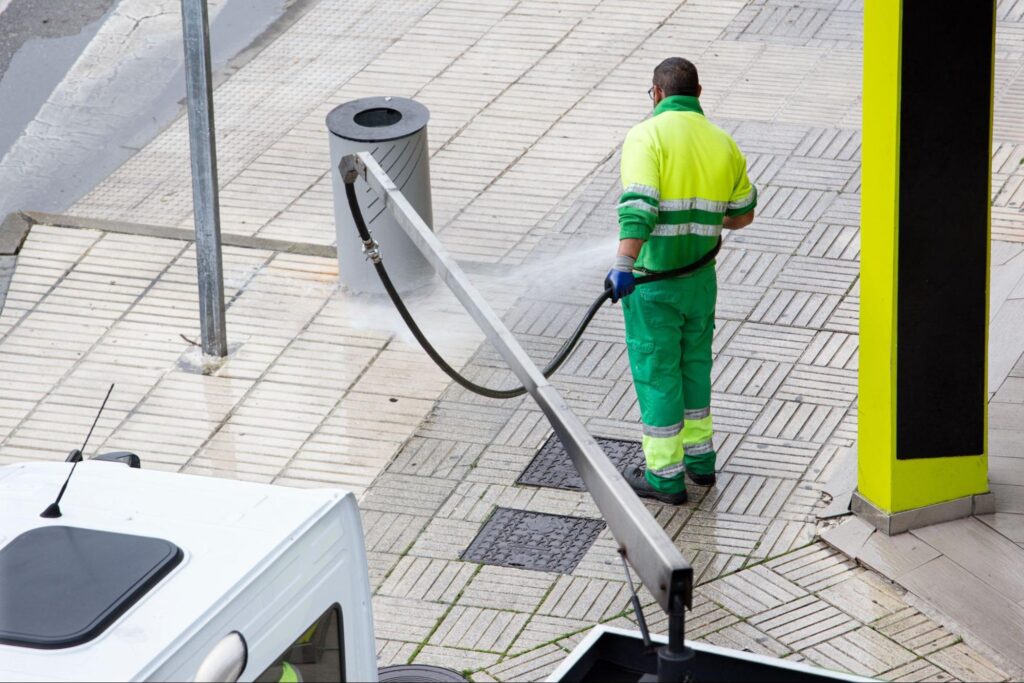Top Industries That Rely on Industrial Pressure Washing
Food processors live and die by sanitation scores, and few tools deliver as much day-to-day impact as a high-flow washer paired with the right chemistry. Floors accumulate fats, proteins, sugars, and mineral films that harbor microbes if they are not entirely removed between shifts. Production drains, equipment frames, loading bays, and tote storage areas all benefit from steady, methodical passes that lift residue without blasting water into sensitive housings. By combining heated water with food-safe detergents and measured pressure, industrial pressure washing keeps lines compliant, reduces slip hazards, and shortens the reset between batches, ensuring high uptime.
Industrial Pressure Washing for Manufacturing Lines and Heavy Equipment
Factories collect cutting oils, coolants, graphite, and fine metal dust that cling to floors and machinery. A targeted wash plan clears grime before it migrates into bearings and electrical cabinets, helping maintenance teams stretch the life of components and keep OSHA walkways clean.
Throughput Improves
Clean aisles and pits speed forklift traffic and reduce time lost to cleanup around spills.
Coatings Last Longer
Removing films before repainting helps primers bond and lowers future corrosion risk.
Preventive Maintenance Benefits
Regular washdowns expose leaks and loose fasteners early, when fixes are simple.
Industrial Pressure Washing at Oil, Gas, and Petrochemical Sites
Refineries and terminals demand cleaning that respects complex safety envelopes. Hydrocarbon residues, salts, and dust must be removed without creating ignition risks or sending contaminated water into storm systems. Crews stage recovery berms, use intrinsically safe equipment when required, and select detergents that break down oils at lower pressure to ensure coatings and label markings remain intact. Catwalks, pipe racks, compressor pads, and truck racks wash up faster with heat and high flow, and the documentation trail around wastewater handling proves compliance to regulators and insurers alike.
Keep Transportation and Fleet Operations Running with Industrial Pressure Washing
From transit depots to distribution hubs, constant movement leaves concrete and equipment coated in soot, brake dust, diesel film, and road salts. Thorough cleaning preserves visibility, reduces corrosion, and improves public perception at street level.
Fleets Need Consistent Results
Wash cycles for buses and trucks remove film that dulls lights and reflective decals.
Depots Stay Safer
Degreased bays and stairs cut slip risk for crews working long shifts.
Better First Impressions
Clean stations and platforms signal reliability to riders and visitors.
Industrial Pressure Washing for Ports, Shipyards, and Marine Facilities
Salt air and spray accelerate corrosion, so piers, bollards, ramps, and hull work all benefit from frequent rinsing and periodic deep cleans. Shipyards pair hot water with degreasers to cut through fuel residues and galley waste around service areas, then switch to gentle, broad-fan passes on coated surfaces to protect anti-fouling systems and deck paints. Recovery mats and filtration are crucial near waterways, capturing solids and emulsified oils before discharge. The payoff is safer footing, fewer coating failures, and a tidier, more efficient yard that can turn vessels faster.
Purpose of Industrial Pressure Washing in Agriculture and Food
Packing houses, dairies, hatcheries, and cold-chain docks share a common enemy in organic buildup. Rapid, repeatable washdowns help maintain biosecurity, protect product quality, and keep regulatory inspections smooth.
Biosecurity Drives Frequency
Regular cleans reduce cross-contamination risk between lots and seasons.
Packing Lines Stay Moving
Conveyor frames and floors shed sticky residues that attract pests when left alone.
Mud and Manure Control Matters
Yard pads and alleyways need attention to keep heavy traffic from tracking contaminants inside.
Industrial Pressure Washing On Construction and Concrete Operations
Batch plants, precast yards, and equipment rental depots accumulate cement paste, form oils, and soils that harden if ignored. Timely rinses at the end of each day prevent permanent buildup on chutes, mixers, and molds, keeping dimensions true and finishes clean. Wash pads with recovery systems capture fines so they do not clog drains or violate permits. On active job sites, a quick pass at entrances keeps sediment from migrating onto public roads, avoiding citations and neighbor complaints. For heavy gear, removing caked clay and asphalt improves service access and shortens inspections before redeployment.
Healthcare, Pharma, and Labs Use-Cases for Industrial Pressure Washing
Clinical campuses and manufacturers of sterile products operate under heightened scrutiny, even outdoors. Service docks, waste compactor pads, generator enclosures, and ambulance bays must stay clean without atomizing contaminants or damaging sensitive finishes.
Cleanroom Support Areas Benefit
Exterior surroundings remain orderly, reinforcing internal GMP culture.
Waste Handling Pads Require Care
Targeted cleaning limits odors and pest pressure while respecting containment rules.
Documentation is Essential
Photo logs and chemical records show diligence during audits and vendor reviews.
Industrial Pressure Washing for Retail Centers, Stadiums, and Hospitality
Public-facing sites measure cleanliness by the minute. Entrances, food courts, concourses, and loading docks collect gum, grease, drink sugars, and scuffs that dim lighting and make floors feel sticky underfoot. Nightly or weekly rotations with heated water and surface cleaners erase those signals of wear before crowds return, and careful scheduling avoids overspray near displays and landscaping. Because lighting is harsh in these venues, uniform passes and spot-free rinses show their value immediately, lifting the entire guest experience and protecting brand standards across multi-property portfolios.
Municipal, Utility, and Public Industrial Pressure Washing
Cities and utilities juggle wide-ranging assets: treatment plants, substations, bus shelters, bridges, and maintenance yards. A consistent cleaning program extends coating life on steel, clears algae from walkways, and helps graffiti removal crews prepare surfaces for protective coatings. Storm structures benefit too—removing debris around grates and culverts lowers flood risk during heavy rains. When residents judge service quality by how facilities look, regular cleans become a simple way to build trust while stretching capital budgets.
Industrial Pressure Washing as a Strategic Maintenance Program
Beyond one-off projects, the real value emerges when cleaning is built into the maintenance rhythm. Pairing service frequency with seasons and site usage prevents soils from getting the upper hand, and bundling sites under a single scope standardizes outcomes across a campus or portfolio.
Scheduling Reduces Disruption
Overnight or shoulder-hour work keeps doors open and drying time predictable.
Environmental Compliance Matters
Recovery, filtration, and clear records protect permits and simplify renewals.
Proving ROI is Straightforward
Lower slip claims, longer coating cycles, and faster inspections tell the story in numbers.
Industrial Pressure Washing the Takeaway for Operations and Facilities
Clean is not cosmetic in industrial settings—it is a performance variable that shapes safety, throughput, regulatory standing, and brand confidence. Whether you manage a food plant, a port, or a stadium, aligning equipment, chemistry, water recovery, and scheduling turns cleaning into a lever for reliability. Start with test patches to dial methods, document what works, and lock in a cadence that keeps surfaces from sliding back. With industrial pressure washing treated as essential maintenance, assets last longer, crews work more safely, and the places people rely on every day function as they should.
Visit the A Plus Power Cleaning blog learn more about the purpose of pressure washing in different industries.
Recent Post
-
The Difference Between Street Cleaning and Parking Lot Cleaning Services
-
Roof Pressure Washing vs. Soft Washing: Which Is Better for Your Home?
-
The Best Time of Year to Schedule Gutter Cleaning Services
-
Why DIY Pressure Washing Can Damage Your Property
-
Manual vs. Powered Gutter Cleaning Tools: Which Works Best?
-
The Science Behind Industrial Pressure Washer Power and Efficiency
-
How a Commercial Pressure Washer Helps Maintain Commercial Properties
-
Water Delivery for Pools: What Homeowners Should Know Before Filling
-
Why Homeowners Trust Local Pressure Washing Companies
-
How Often Should You Schedule House Pressure Washing?
-
How Modern Technology Improves Pressure Washing Equipment Performance
-
What to Expect When You Call a Pressure Wash Business
-
The Step-by-Step Process of Professional Parking Lot Cleaning
-
How a Commercial Surface Cleaner Helps Maintain Sidewalks and Parking Lots
-
Why More Homeowners Rely on Pool Water Delivery Services
-
How a Gutter Cleaner Helps Protect Roofs and Foundations
-
The Difference Between DIY and Professional Pressure Wash Services
-
What Pressure Washer Companies Do and Why You Need Them
-
Pressure Washing vs. Soft Washing: Which Is Right for Your House?
-
Top Industries That Rely on Industrial Pressure Washing
-
The Benefits of Using a Pressure Washer for House Exteriors
-
The Difference Between Residential and Commercial Pressure Washing
-
What Is a Pressure Washer Surface Cleaner and How Does It Work?
-
The Importance of Regular Gutter Cleaning for Home Maintenance
-
How Weather Conditions Affect High Rise Window Cleaning
-
What Pressure Washing Equipment is Needed for Residential Spaces?
-
What Pressure Washing Equipment is Needed for Residential Spaces?
-
Best Times for Driveway Pressure Washing
-
Pressure Wash vs. Power Wash: What's the Difference?
-
How Often Should You Invest in Roof Gutter Cleaning?
-
Best Pressure Washing Company Near Me in Austell, GA
-
Top Power Wash Company Near Me in Chamblee, GA
-
Top Powerwash Company Near Me in Atlanta, GA
-
Top Pressure Cleaning Companies Near Me Austell, GA: A Plus Power Cleaning
-
Top Pressure Washing Companies Near Me Chamblee, GA: A Plus Power Cleaning
-
Top Pressure Cleaning Companies Near Me Atlanta, GA: A Guide to Power Cleaning Services
-
Best Electric Pressure Washer in Atlanta
-
How Much Does Roof Cleaning Cost in Marietta, GA and Atlanta, GA?
-
How Much Does Pressure Washing Cost in Georgia?
-
What is the Difference Between Power Washing and Pressure Washing


